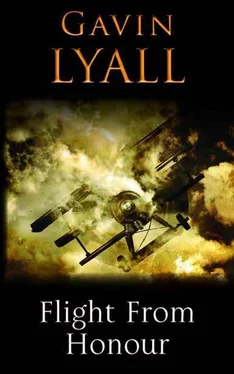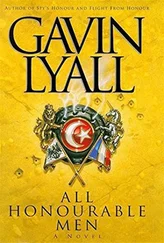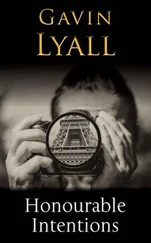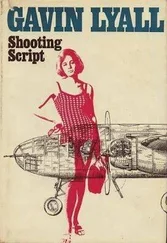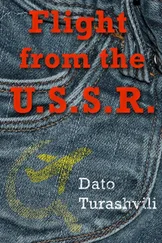Gavin Lyall - Flight From Honour
Здесь есть возможность читать онлайн «Gavin Lyall - Flight From Honour» весь текст электронной книги совершенно бесплатно (целиком полную версию без сокращений). В некоторых случаях можно слушать аудио, скачать через торрент в формате fb2 и присутствует краткое содержание. Год выпуска: 2013, Издательство: PFD Books, Жанр: Шпионский детектив, Исторический детектив, на английском языке. Описание произведения, (предисловие) а так же отзывы посетителей доступны на портале библиотеки ЛибКат.
- Название:Flight From Honour
- Автор:
- Издательство:PFD Books
- Жанр:
- Год:2013
- ISBN:нет данных
- Рейтинг книги:4 / 5. Голосов: 1
-
Избранное:Добавить в избранное
- Отзывы:
-
Ваша оценка:
- 80
- 1
- 2
- 3
- 4
- 5
Flight From Honour: краткое содержание, описание и аннотация
Предлагаем к чтению аннотацию, описание, краткое содержание или предисловие (зависит от того, что написал сам автор книги «Flight From Honour»). Если вы не нашли необходимую информацию о книге — напишите в комментариях, мы постараемся отыскать её.
Flight From Honour — читать онлайн бесплатно полную книгу (весь текст) целиком
Ниже представлен текст книги, разбитый по страницам. Система сохранения места последней прочитанной страницы, позволяет с удобством читать онлайн бесплатно книгу «Flight From Honour», без необходимости каждый раз заново искать на чём Вы остановились. Поставьте закладку, и сможете в любой момент перейти на страницу, на которой закончили чтение.
Интервал:
Закладка:
25
The worried, sleepless hours on the train had caused Trieste to loom ominously. It would be strange and sinister, closed against him – and yet sucking him in. Ranklin felt it would want to trap him, be full of eyes, unseen but all-seeing, waiting to pounce on his slightest mistake.
But now, from the steps of the Excelsior Palace on a sunny morning, the nightmare faded with the sea haze. If Trieste was full of eyes, it was also full of ships, fat Italians, thin Greeks and screeching seagulls. And the most immediate thing likely to pounce on a mistake was the traffic, albeit most still horse- and even ox-drawn except for slow-chugging goods trains that ran along the dockside just across the road.
The long, busy waterfront stretched away on either side. To the right, the bigger ships nestled against the warehouses of the railway yard; to the left lay smaller steamers, trading schooners and fishing boats. And beyond them, somewhere round the point with its stubby lighthouse, were the warship slipways of Stabilimento Tecnico. He was not going to goggle at them, even if it were, physically possible.
Instead, he turned right and right again into the Piazza Grande with its trees, bandstand and cafes, heading vaguely for the Exchange but mostly trying to fit into the city’s pace and mood. Just spending a few pfennigs on a packet of cigarettes helped convince him of some sort of rapport. Because what he was really looking for was the ordinary confidence of an honest man.
Half an hour later he was sitting in a dainty bright cafe with Signor Pauluzzo and two friends who were delighted to chatter to the House of Sherring. And since the name so impressed them, Ranklin lost nothing by explaining that he was both new and junior (and thus didn’t know any juicy high-level gossip).
“The troubles in the south Balkans affect us not at all,” Pauluzzo was claiming. “They have their own ports for what little trade they do. What happens here does not matter to the Carso-” he waved a pudgy hand vaguely eastwards; “-for perhaps 200 kilometres inland. Trieste lives with Vienna, Budapest, Prague, Berlin even. Since the new railway five years ago, each year is a new record in trade. In manufactured goods alone . . .”
It is always difficult to guess the age of foreigners, but Ranklin made Pauluzzo over sixty, with his aura of comfortable worth in black suit, wing collar and a white moustache that disdained the dashing upturned ends favoured by the Austrians. And the other two about his own age or younger; one even wore a turned-down collar like his own, which probably counted as rather flash on the Exchange. So far they had done little but nod and smile.
“And local industries?” Ranklin prompted.
“Again, new records – especially in shipbuilding. This year, Stab Tec will build over twenty warships and eighty other vessels.”
“Perhaps over one hundred,” ventured one of the others.
“It sounds as if there is no problem with strikes,” Ranklin ventured, “as at Fiume?” It was pure luck that the yard down the coast, building the fourth of the dreadnoughts, was strike-bound at the moment. He had no idea why, but it made it a reasonable topic for an outsider.
That brought confident chuckles and some unkind murmurs about managers and workers down there. Pauluzzo held up a hand. “No, we must be fair,” he said solemnly, and the expressions on the younger faces warned: Joke Coming. “It is not easy to build a battleship from the keel downwards, in the Hungarian manner.”
They all duly guffawed. But before he could work around to another rib-tickler, Pauluzzo was called away by a messenger and the atmosphere relaxed in the international camaraderie of the same age group.
Ranklin put his pipe in his mouth. “And no hint of political – nationalist – problems?”
They swapped glances, then the one with the turned-down collar and a long Venetian nose shrugged and said: “I only speak of the Italians. The Slovenes, in the city there are not so many, and I do not know what they think. Probably they hate both Austrians and Italians. But the Italian worker, he thinks of himself as Italian, so when he gets drunk he says he is oppressed by the Austrians. But all around are Italians also getting drunk and agreeing with him, eating Italian food, reading newspapers in Italian, in the city where their fathers and grandfathers got drunk and complained also. And when he is sober in the morning, when he goes to work in the shipyard, he looks at the colour of his money before the colour of the flag. He loves Italy, but does he want Italian poverty and politics?”
The other had been nodding gently. Now he said: “Also, they listen to the Church which tells them to be good citizens and loyal to the Emperor, who is a good Catholic himself and not like Italian politicians who have robbed the Church of land and power.”
The first one said: “If there came an avenging angel, a new Garibaldi, even Oberdan, then perhaps – who knows? But until then-” He lifted a couple of coins set aside as a tip and chinked them. “This is the music of Trieste. It is so since Roman times.”
If this is true, or even half true, Ranklin thought, how does Falcone reckon to get the workers to rise and wreck their own livelihood? He steered the conversation into the innocent waters of capital shortages before it ended.
The trouble, he told himself as he paced slowly around the Piazza, is that I don’t know even how British civilian workers think and feel. Oh, I know the Army’s view of civilians, but since I left off the cocoon of uniform, life has looked a lot more complex.
Still, I’ve only heard one view. Perhaps I’ll find another one in the Cafe San Marco.
He knew the place immediately: he had, he felt, sat there in every Central European city he had visited, among the same almost democratically diverse clientele. Intellectuals gathered there because no-one objected to their loud argument, ladies came in because the coffee was good, businessmen might meet there because it was centrally placed, and students because they were left alone to read. And the cafe didn’t mind if you only popped in to view such diversity, particularly such flamboyant and slightly scandalous characters as the Conte di Chioggia.
There was no mistaking him; he clearly didn’t want there to be. He was elderly, slim, aristocratic, wearing a light suit, a wide floppy hat and holding a silver-knobbed cane like a staff of office; on a cooler day he would surely have worn a cloak. Ranklin sat and watched as a stream of visitors arrived at his table, drank a coffee, said a few words, listened and went about their business. They were a well-mixed bunch, but that didn’t mean that a complete stranger would be welcome.
Past noon the waiters started clattering cutlery and serving lunch, and the turnover at the Count’s table dried up to one man who was obviously going to stay and eat. But first, he had to greet a lady on the far side of the room and Ranklin acted on an impulse.
Carrying a menu and frowning at it, he moved to the Count’s table. “Beg pardon, Excellence, but do you speak English?”
The Count showed no sign of surprise at being recognised by a total stranger. “I retain a modest competence in that language. How may I be of assistance?”
“If you could explain what this dish here is . . . I was recommended to this cafe by Senator Falcone.” The Count’s face showed only polite interest. “Or perhaps it was Signor Vascotti.”
“Ah yes.” The Count smiled. “How is he?”
“Recovering.” That was commitment.
“Good.” No questions, just “good”. That was commitment, too, Ranklin exulted.
The Count took his time putting on a pair of gold pince-nez that were tied to him by a scarlet cord and peering at the menu. “And who are you, pray?” he murmured.
Читать дальшеИнтервал:
Закладка:
Похожие книги на «Flight From Honour»
Представляем Вашему вниманию похожие книги на «Flight From Honour» списком для выбора. Мы отобрали схожую по названию и смыслу литературу в надежде предоставить читателям больше вариантов отыскать новые, интересные, ещё непрочитанные произведения.
Обсуждение, отзывы о книге «Flight From Honour» и просто собственные мнения читателей. Оставьте ваши комментарии, напишите, что Вы думаете о произведении, его смысле или главных героях. Укажите что конкретно понравилось, а что нет, и почему Вы так считаете.
